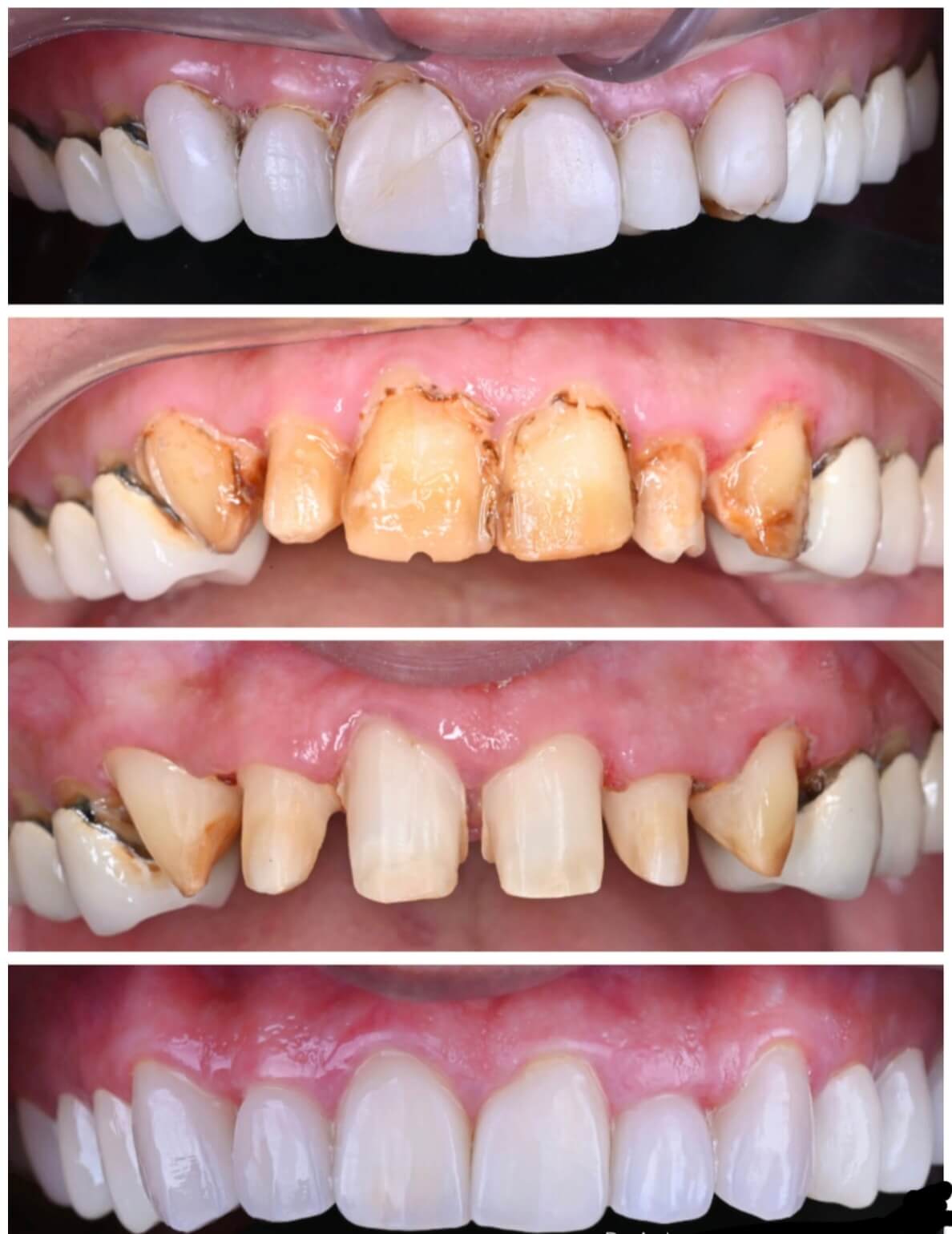Relieve your toothache and save your natural teeth with our Root Canal Therapy.

Overview
Root Canal Therapy
Root canal therapy is a common dental procedure performed to treat a damaged or infected tooth. The procedure involves removing the damaged or infected pulp from inside the tooth and replacing it with a filling material to prevent further damage or infection. Root canal therapy can help save a damaged tooth from extraction and alleviate the pain and discomfort associated with a tooth infection.
Root canal therapy is a dental treatment used to save and repair a damaged or infected tooth instead of extracting it. The procedure involves removing the damaged or infected pulp inside the tooth, cleaning the area, and sealing it with a filling material. Root canal therapy is a common procedure that can relieve pain, prevent further damage to the tooth, and restore its function. It is often performed by a general dentist or an endodontist, a dentist who specializes in root canal therapy.
In some cases, a crown may be placed on the tooth to provide additional support and protection. Proper oral hygiene and regular dental check-ups can help prevent the need for root canal therapy.
Benefits of Root Canal Therapy
Here are some Benefits of Root Canal Therapy
Preserves Natural Tooth
This procedure helps to save the natural tooth, which is important for maintaining proper chewing function and preventing further dental problems.
Improves oral Health
Treating the infected tooth with root canal therapy helps to improve overall oral health and prevent the need for more extensive and costly dental treatments in the future.
Prevents Further Infection
By removing the infected or inflamed pulp tissue, root canal therapy prevents the spread of infection to the surrounding teeth and gums.
Relieves Pain
Root canal therapy helps to alleviate the pain and discomfort associated with an infected or inflamed tooth.
Root canal therapy has a high success rate and is a common procedure performed by dental professionals. It is a safe and effective way to treat an infected or inflamed tooth, and with proper care, a tooth that has undergone root canal therapy can last a lifetime.
Root Canal Therapy Procedure
Root canal therapy is a dental procedure that involves the removal of infected or damaged pulp from inside a tooth. The procedure is typically performed by an endodontist, a specialist in treating the inner tooth. Here is an overview of the root canal therapy procedure:
Exam and Diagnosis
The dentist will first examine the tooth and take X-rays to determine the extent of the damage and if a root canal is necessary.
Anesthesia
Local anesthesia is administered to numb the area around the tooth and ensure that the patient is comfortable throughout the procedure.
Access Opening
A small opening is made in the top of the tooth to access the pulp chamber.
Removal of Pulp
The infected or damaged pulp is removed from the pulp chamber and root canals using specialized tools.
Cleaning and Shaping
The dentist will then clean and shape the canals to prepare them for filling.
Filling
The canals are filled with a biocompatible material, typically gutta-percha, to prevent bacteria from re-entering the tooth.
Crown placement
In most cases, a crown is placed over the tooth to protect it and restore function.

Overall, root canal therapy can help to save a damaged or infected tooth and alleviate pain and discomfort associated with the problem. The procedure has a high success rate and is typically completed in one or two appointments.
Symptoms that Indicate the Need for Root Canal Therapy
Symptoms that indicate the need for root canal therapy include severe tooth pain, especially when chewing or applying pressure to the tooth, sensitivity to hot or cold temperatures, a small bump or pimple on the gums near the affected tooth, discoloration of the tooth, and swelling or tenderness in the nearby gums. These symptoms may indicate that the tooth’s pulp, the soft tissue inside the tooth, is infected or inflamed and needs to be removed to prevent further damage or infection. If any of these symptoms are present, it is important to consult with a dentist as soon as possible to determine if root canal therapy is necessary.

Aftercare instructions for Root Canal Therapy
After undergoing root canal therapy, it is essential to take proper care to ensure quick healing and prevent any complications. Here are some aftercare instructions:
- Take the prescribed pain medications as directed by your dentist to manage any discomfort.
- Avoid chewing or biting with the treated tooth until the permanent restoration is placed.
- Practice good oral hygiene by brushing and flossing regularly and as directed by your dentist.
- Avoid hard and sticky foods that can damage the treated tooth.
- Attend all follow-up appointments with your dentist to ensure proper healing and restoration of the tooth.
- Notify your dentist immediately if you experience any signs of infection, such as fever or swelling.
- Wear a mouthguard if you engage in any contact sports or activities to prevent damage to your teeth.
- Maintain a healthy and balanced diet to promote overall oral health and healing.
By following these aftercare instructions, you can ensure successful healing and prolong the life of your treated tooth.
Common Misconceptions About Root Canal Therapy
Root canal therapy has long been a subject of myths and misconceptions. Here are some common misconceptions and the truth about root canal therapy:
- Root canal therapy is painful : One of the most common misconceptions is that root canal therapy is a painful procedure. However, with advancements in dental technology and anesthesia, most patients report little to no pain during the procedure.
- Root canal therapy causes illness : Another common misconception is that root canal therapy can cause illness or other health problems. However, there is no scientific evidence to support this claim. In fact, root canal therapy is a safe and effective way to save a damaged or infected tooth.
- Extraction is a better option : Some people believe that extraction is a better option than root canal therapy. However, keeping your natural teeth is always the best option, as they help maintain the structure of your mouth and allow you to eat and speak normally.
- Root canal therapy is only necessaryfor severe pain : While severe pain is one of the symptoms that indicate the need for root canal therapy, not all cases are accompanied by pain. Other symptoms may include sensitivity to hot and cold, swelling, and tenderness.
By understanding the truth about root canal therapy and dispelling common misconceptions, patients can make informed decisions about their dental health.


